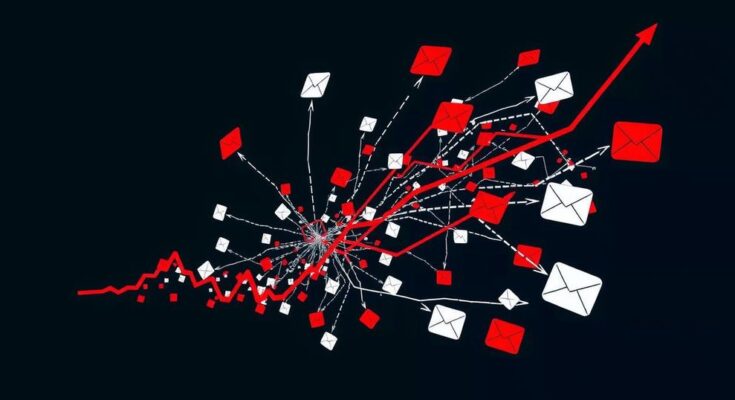As the upcoming election approaches, the proliferation of disinformation has reached unprecedented levels, undermining public trust in American democracy. False narratives, both domestic and foreign, are prevalent, notably including false accusations against Vice President Kamala Harris. This surge of disinformation poses threats to the electoral process and democratic integrity, with foreign adversaries actively stoking divisiveness and mistrust.
As the upcoming election approaches, the proliferation of disinformation in American politics has reached unprecedented levels. Instances of falsehoods originating from both domestic and foreign sources have severely undermined public trust in the integrity of the electoral process. Investigations since 2022 have highlighted the transformative impact of misinformation on the electoral landscape, exposing a plethora of deceptive narratives intended to sway public opinion. One notable example includes fabricated accusations against the Democratic Party’s vice-presidential nominee, Kamala Harris, which alleged her involvement in the sexual molestation of students. These misleading claims have been disseminated by a former deputy sheriff from Florida, currently functioning as part of Russia’s propaganda apparatus, across an array of social media platforms and disreputable news outlets. Furthermore, a manipulated video allegedly depicting one victim garnered over five million views on X, the platform under the ownership of Elon Musk, who has demonstrated bias towards the Republican nominee, former President Donald J. Trump. Disinformation, characterized by smears, lies, and unethical tactics, has long been embedded within American electoral campaigns. However, this year’s pre-election period stands out for its rampant spread of half-truths and fabrications, surpassing previous electoral cycles. Researchers and officials monitoring the disinformation landscape acknowledge this escalation, highlighting its potential impact on the election scheduled for November 5 and its ramifications on political discourse surrounding the candidates. This environment of deceit has not only distorted the political debate but has also eroded foundational beliefs in the fairness and transparency of U.S. elections. Numerous foreign adversaries, such as Russia, Iran, and China, have exacerbated the situation by capitalizing on these narratives to foster perceptions of American dysfunction. Domestic political figures and media personalities have unwittingly assisted these foreign agendas, igniting division for partisan gains. Jen Easterly, Director of the Cybersecurity and Infrastructure Security Agency, articulates the overarching goals of these foreign entities, stating, “They do have different tactics and different approaches to influence operations, but their goals are the same. Very simply, they’re looking to undermine American trust in our democratic institutions and the election specifically, and to sow partisan discord.” As the electoral landscape continues to evolve under the shadow of disinformation, both its implications for the November election and its broader consequences for democratic principles remain to be seen.
Disinformation has emerged as a critical concern for democratic societies, particularly in the context of electoral politics. With frequent occurrences of false narratives aimed at influencing public opinion, the integrity of electoral processes is at risk. Before elections, misinformation campaigns escalate, often exacerbated by foreign and domestic actors seeking to manipulate perceptions. Understanding the challenges posed by these deceptive tactics is essential for safeguarding electoral integrity and restoring public confidence in democratic institutions.
The current election period is marked by an unprecedented surge in disinformation, influencing public perception and challenging the integrity of American democracy. Tactics employed by both domestic and foreign adversaries intend to subvert public trust in electoral processes while fueling factional discord. The upcoming election’s outcome may ultimately be influenced by these disinformation dynamics, necessitating urgent measures to uphold the foundational tenets of democracy.
Original Source: www.nytimes.com




